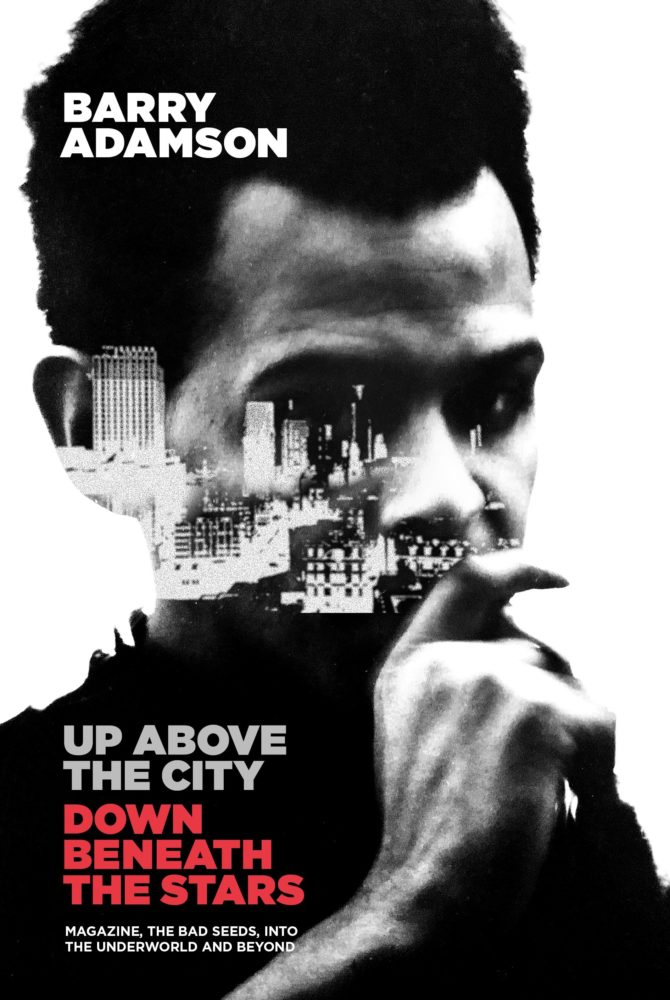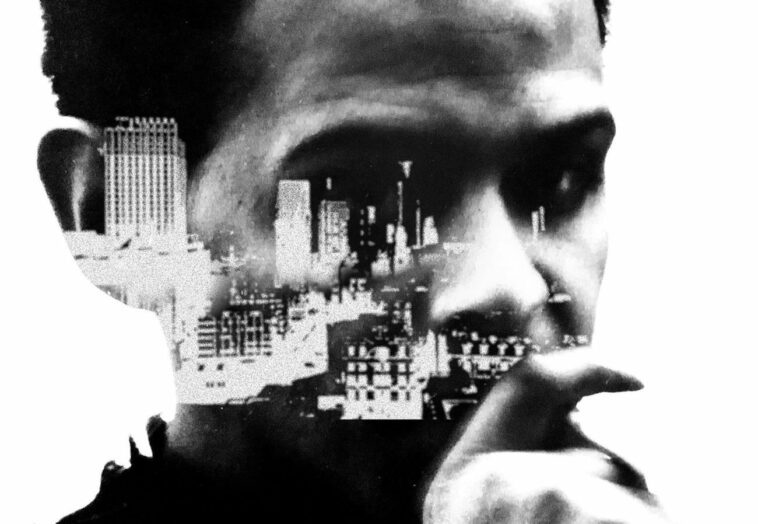Barry Adamson’s memoir is called Up Above the City, Down Beneath the Stars and it couldn’t be better phrased. This a man who has risen with angels and dined with demons.
You may not know him and that’s no problem. He hasn’t exactly made himself apparent. You won’t see him on Strictly Come Dancing or even in the charts. He likes the road less travelled. So why does he merit a memoir?

Well, his bass will grace albums from bands you may love. And his solo albums are fundamentally personal, almost soundtracks, dramatic telling of stories which aspire to immersion.
And yet this story—his story—is full of self-loathing, mistakes and a lack of self-confidence. It’s also full of honesty. Extremely urban too, his music is based around smudgy, dark, dangerous streets and quintessential characters.
This is a book based in Manchester and London—the dirty, delightful clubs there. And the Crescents in Hulme, long gone but in the past a community of flats with a party in so many of them, a place of no police with an often illicit thrill.
Barry Adamson was in bands you like. Let’s not give them the damning with faint praise description ‘influential’, although I just did. His first band were post-punk delights Magazine. And Nick Cave’s Bad Seeds, whose blues blast inspired so many. This alone would be extraordinary, but he didn’t stop there.
He produced wonderful solo music too, equal parts John Barry, David Axelrod and Last Poets; but that’s just my view. The music is so fecund, so full of possibilities, so lacking in irony that it enfolds you, captures you, delights you.
That’s a potted history. My story. This book is Barry’s. After all, he was there, but never is this a mea culpa, never is it mawkish. Although always honest, it never allows itself the escape route of anguish. Here is a story of music, drugs and weakness. Each of them is given a different feel.
The music reeks of hope, luck and ambition. A life steeped in music, working with songs as his ability grew. It was his good fortune to be in bands where he could use it.
The drugs tells of ease and a love of companionship with women, one of whom introduced Adamson to his drug of choice, heroin. He produced great music less and less often as one need superceded the other. Strangely he doesn’t talk about it so much during the time he began to make his own music.
And the last part of the trident is the weakness, the constant lying to himself about getting clean, about it being this time. Told with an easy grace which makes the addiction compelling and horrible in equal measure.
A beautifully told story, a page turner because of the turn of phrase and off kilter approach. The nuts and bolts of being in a band, the relationships with people like Cave and Howard Devoto, some people will love this book because of that. This is Adamson’s story and yet he never wears it as a badge of courage. He called himself ‘the outsider’s outsider’ in the Guardian in 2016 and yet this book is warm and draws you in; it’s not apparent why.
Although he’s had a career in music that others would hanker for, it’s actually his childhood, his growing up in South Manchester that really delights. The sudden sparks in his mum and dad’s marriage, his childhood illness which changed so many things and his simple questing, his need to fit in. Not with others, with himself.
This book ends at the beginning of his solo career, around the time of ‘The Man With The Golden Arm’, so there’s so much more to go. That should include the wonderful ‘Moss Side Story’ and, for me, his best work, ‘King Of Nothing Hill’. As he said to Dangerous Minds: ‘When you have to come back to yourself and find the things about you that make you you…’
I can’t wait to hear the next bit.

